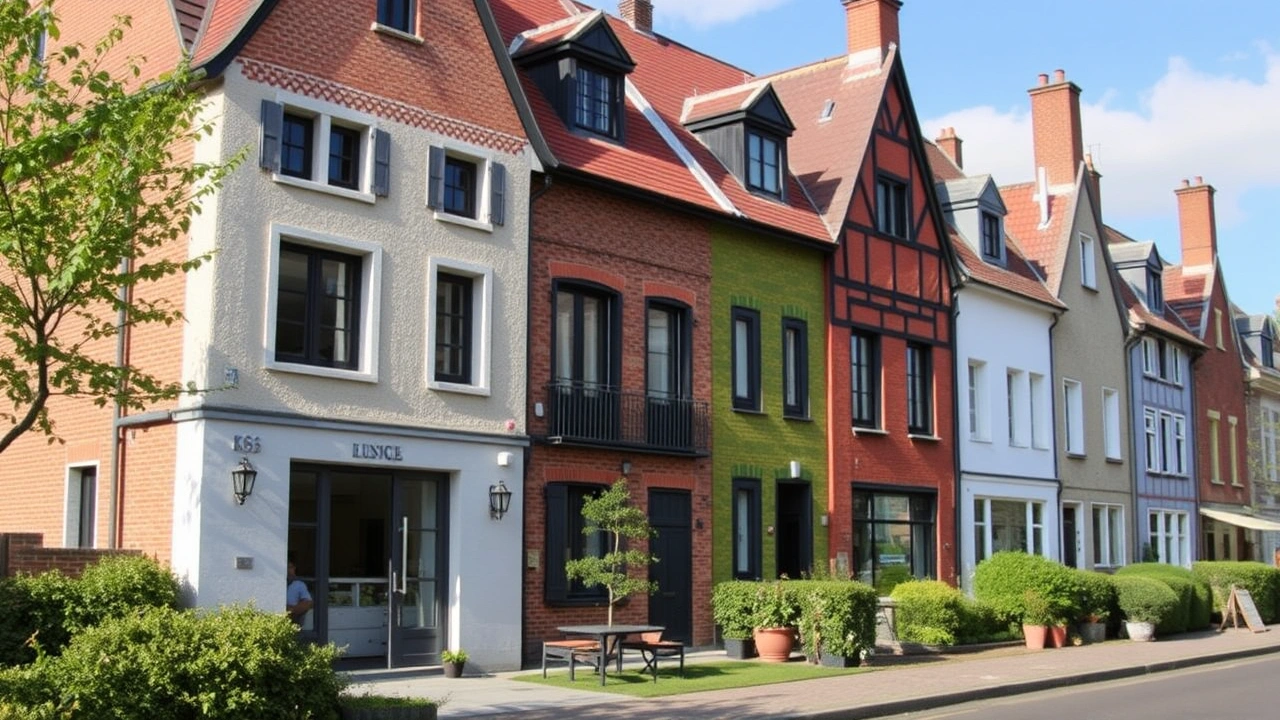
 Published on and written by Cyril Jarnias
Published on and written by Cyril Jarnias
Singapore, a prosperous city-state in Southeast Asia, attracts numerous international real estate investors due to its economic and political stability, robust legal framework, and dynamic property market. However, obtaining property financing in Singapore as a foreigner may seem complex at first glance. This article will guide you through the key steps to realize your real estate investment project in the Lion City.
The doors to Singaporean real estate are open to foreigners
Good news for international investors: it is entirely possible to obtain property financing in Singapore as a foreigner. Whether you are a permanent resident, a work visa holder, or even a non-resident, Singaporean banks offer financing solutions tailored to your situation.
However, it is important to note that loan conditions may vary depending on your status:
- Permanent residents generally benefit from the same conditions as Singaporean citizens
- Work visa holders (Employment Pass or S Pass) can obtain loans, but with potentially less favorable conditions
- Non-residents face stricter criteria, particularly in terms of loan-to-value (LTV) ratio and interest rates
It is recommended to consult several banks to compare offers, as lending policies for foreigners can vary from one institution to another. Some international banks present in Singapore, such as HSBC or Citibank, may be more open to foreign investor applications.
Good to know:
Foreigners can freely purchase condominium apartments in Singapore. The purchase of landed houses or land is subject to restrictions and requires government approval.
Build a solid file: Essential documents
To maximize your chances of obtaining property financing in Singapore, it is crucial to prepare a complete and convincing file. Here are the documents generally required by Singaporean banks:
- Valid passport and visa
- Proof of income (pay slips, tax returns) for the last 3 years
- Bank statements for the last 6 months
- Employment certificate or work contract
- Proof of assets (savings account statements, investment portfolio)
- Details of the targeted property (option to purchase, floor plan, etc.)
- Credit history (if available)
For non-residents, additional documents may be required, such as proof of address in your home country or international bank references.
It is advisable to translate all documents not in English and have them certified if necessary.
Good to know:
Prepare your file well in advance of your loan application. Singaporean banks are known for their rigor and efficiency. A complete and well-organized file will significantly speed up the approval process.
Keys to success: Conditions to meet to secure your financing
To obtain property financing in Singapore, you will need to meet certain financial and personal criteria. Here are the main elements considered by banks:
1. Loan-to-Value ratio (LTV)
The maximum LTV for foreigners is generally lower than for Singaporean residents. It ranges between 60% and 80% depending on your status and the type of property. Be prepared to provide a substantial down payment.
2. Total Debt Servicing Ratio (TDSR)
The TDSR must not exceed 60% of your monthly income. This ratio takes into account all your existing debts, including the planned property loan.
3. Professional stability and income
Banks prefer borrowers with stable professional situations and regular income. An indefinite-term employment contract and tenure in your current job are assets.
4. Credit history
A good credit history, even in your home country, can work in your favor. Avoid any late payments on your existing debts.
5. Age and loan duration
The maximum loan duration is generally 30 years, but it may be reduced depending on your age. The loan must be repaid before you turn 65 (or 75 for some banks).
6. Type of property
Financing conditions may vary depending on whether you are buying a new, existing, or under-construction property. Some banks have specific criteria for each category.
Good to know:
Interest rates for property loans in Singapore are generally indexed to the SIBOR (Singapore Interbank Offered Rate) or SOR (Swap Offer Rate). Carefully compare offers from different banks, as the applied margins can vary significantly.
Obtaining property financing in Singapore as a foreigner is a demanding process but entirely achievable. The key to success lies in meticulous preparation of your file and a thorough understanding of Singaporean banks’ eligibility criteria.
Do not hesitate to enlist the help of a broker specialized in property loans for foreigners in Singapore. These professionals know the local market perfectly and can help you negotiate the best loan conditions based on your profile.
Finally, keep in mind that the Singaporean property market is highly regulated. Familiarize yourself with local laws, particularly regarding additional stamp duties for foreign buyers (ABSD – Additional Buyer’s Stamp Duty), which can significantly impact the total cost of your investment.
With proper preparation and the right advice, your dream of property investment in Singapore can become a reality, opening the door to exciting opportunities in one of Asia’s most dynamic economies.
Good to know:
The Singaporean property market is known for its resilience and long-term stability. Despite high prices, many foreign investors consider Singapore a prime destination for diversifying their property portfolio.
Disclaimer: The information provided on this website is for informational purposes only and does not constitute financial, legal, or professional advice. We encourage you to consult qualified experts before making any investment, real estate, or expatriation decisions. Although we strive to maintain up-to-date and accurate information, we do not guarantee the completeness, accuracy, or timeliness of the proposed content. As investment and expatriation involve risks, we disclaim any liability for potential losses or damages arising from the use of this site. Your use of this site confirms your acceptance of these terms and your understanding of the associated risks.


















